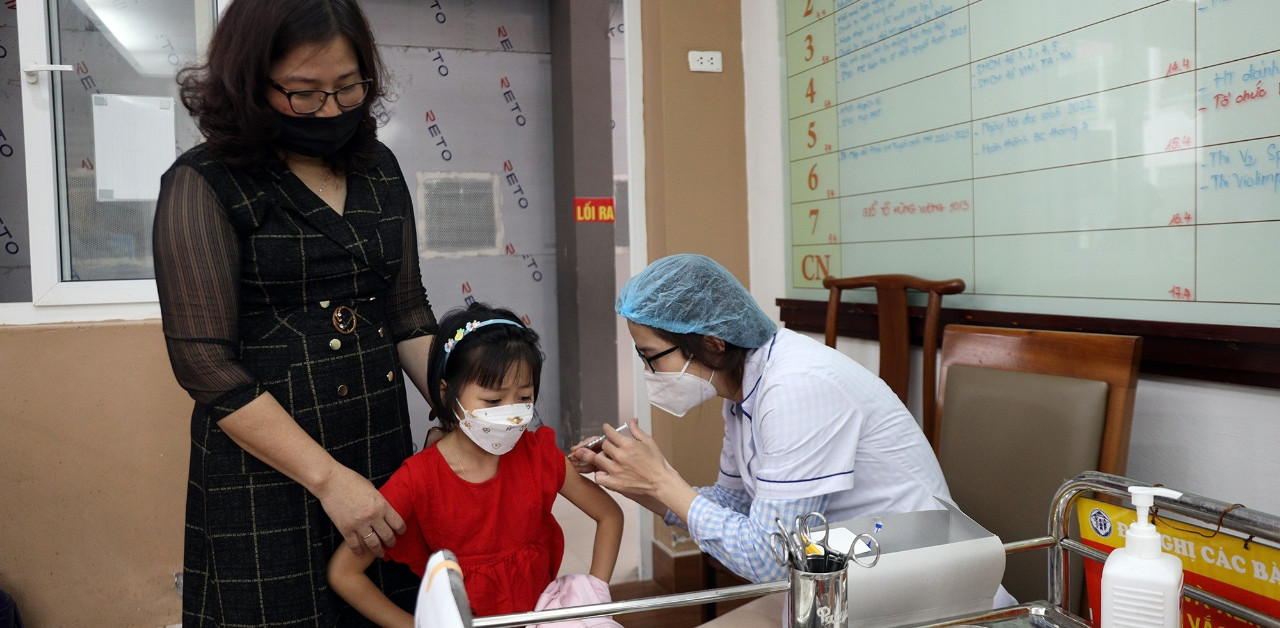Post-Covid-19 menstrual disorder
Three months ago I contracted Covid-19, my menstrual cycle is changing regularly, every 40 days, my stomach hurts and I am more tired. Do I need treatment? (Thuong Hoa, 29 years old, Binh Duong)
More and more women are reporting that Covid-19 has affected their menstrual cycle. Irregular periods and menstrual problems can increase the severity of post-Covid symptoms and have long-term effects on a woman’s reproductive system.
Post-Covid-19 menstrual disorders have manifestations such as: irregular menstrual cycle: prolonged, menorrhagia – hypermenorrhea or amenorrhea – amenorrhea…; Abnormalities in menstrual bleeding: abnormal blood clots in menstrual discharge.
Premenstrual syndrome (PMS) worse: excitability, anxiety, agitation, anger, insomnia, difficulty concentrating, lethargy, depression, headache, dizziness, irritability of the extremities , fainting, palpitations, constipation, nausea, vomiting… and more severe fatigue.
The causes of menstrual disorders after Covid-19 can be an imbalance in the levels of sex hormones such as estrogen and progesterone. In addition, nCoV causes blood clotting disorders, affecting menstruation.
External pressures during and after Covid-19 lead to anxiety and stress; or using drugs to treat pre-existing conditions (high blood pressure, diabetes…) also contribute to the menstrual cycle.
According to studies, menstruation can return to normal after 1-2 cycles. However, if you have a prolonged menstrual cycle, you need to be examined to rule out obstetric and gynecological diseases or other causes, before thinking about the effects of nCoV.
Common medical conditions that cause menstrual disorders include uterine disease (fibroids or polyps), female hormone imbalance, endometriosis, pelvic inflammatory disease, and ovarian syndrome. polycystic, uterine or cervical cancer, some other diseases such as thyroid disease, pituitary dysfunction…
To improve menstrual disorders after Covid, you need to adjust your diet, sleep on time, supplement with necessary nutrients; combine regular exercise and sports, especially relaxation exercises (meditation, yoga…); keep your mind at ease, think positively; Limit the use of alcohol, beer, tobacco, and other stimulants.
In traditional medicine, in addition to remedies for each type of disease, it can also be combined with non-drug methods such as acupuncture, ear acupuncture, thread implantation, massage, nourishment… to help regulate the menstrual cycle. Safe, long-lasting effect.
Doctor Nguyen Thi Diem Huong
Ho Chi Minh City University of Medicine and Pharmacy Hospital – Campus 3
at Blogtuan.info – Source: vnexpress.net – Read the original article here



